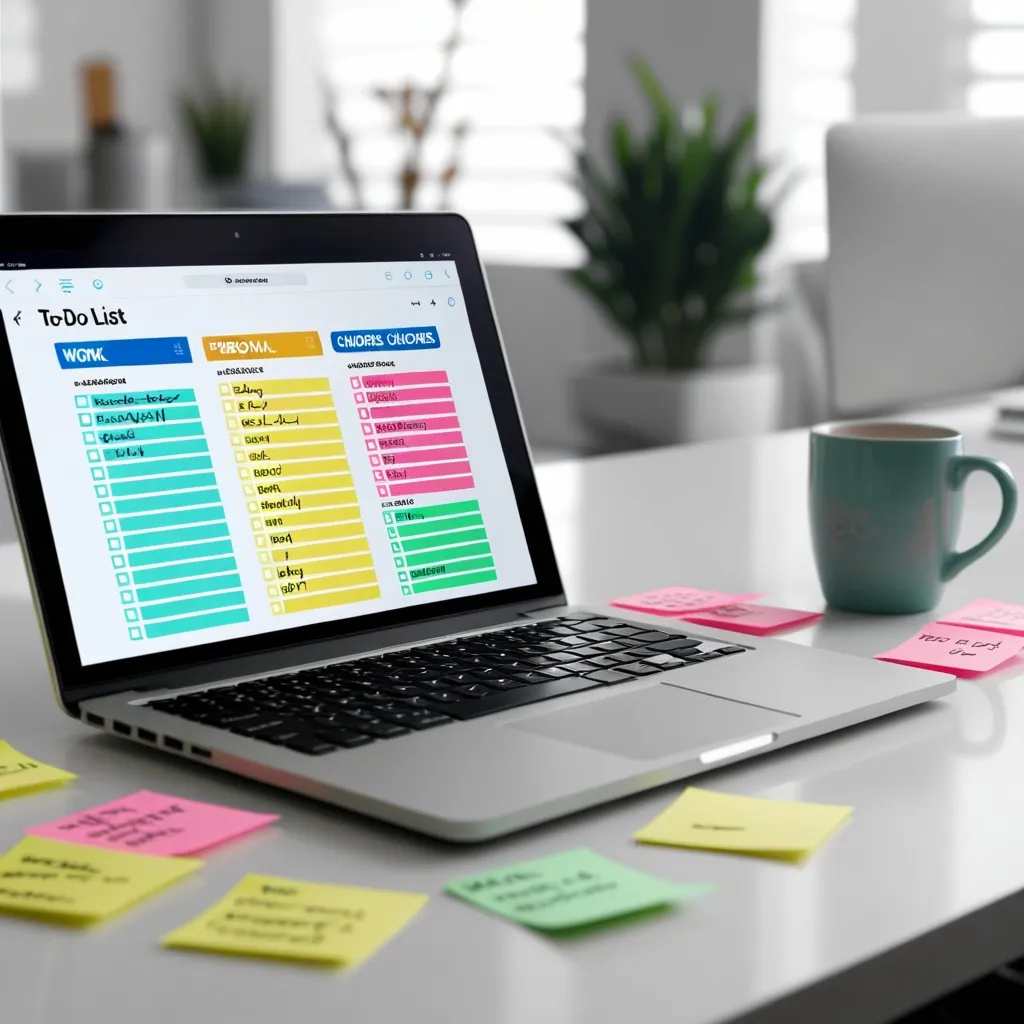In the pursuit of productivity, it’s easy to get caught up in grand strategies and complex systems, but sometimes the simplest approaches yield the most significant results. Here, we’ll explore seven micro-habits that, when consistently practiced, can lead to macro productivity gains.
The Power of Small Actions
When we think about productivity, we often envision long to-do lists and marathon work sessions. However, the key to sustained productivity lies in the small, consistent actions we take every day. These micro-habits are not just minor adjustments; they are the building blocks of larger, more significant habits that can transform your work routine.
The Two-Minute Rule
Imagine a task that takes less than two minutes to complete. It could be responding to a simple email, filing a document, or even just tidying up your workspace. The Two-Minute Rule suggests that if a task falls into this category, you should do it immediately. This habit prevents small tasks from accumulating and becoming overwhelming, freeing up your mental and physical energy for more substantial tasks.
Email Batching
Constantly checking your email can be a productivity killer. Each time you switch between tasks, you incur what’s known as “context switching” costs – the time and mental effort it takes to refocus. Email batching is a simple yet powerful habit where you check and respond to emails only at set times during the day. This reduces interruptions and allows for more focused work periods, making you more efficient and less stressed.
The Five-Minute Journal
Starting and ending each day with a quick journaling session can have a profound impact on your productivity and mental well-being. The Five-Minute Journal involves writing down three things you’re grateful for, three priorities for the day, and reflecting on your accomplishments. This habit helps you stay grounded, focused, and motivated. It’s a moment of reflection that sets the tone for your day and helps you appreciate your progress.
The 1-3-5 Method
Planning your day can feel daunting, especially when faced with a long list of tasks. The 1-3-5 Method simplifies this by structuring your day around completing one big task, three medium tasks, and five small tasks. This approach ensures you have a mix of important and quick-win items, keeping you balanced and productive. It also helps you prioritize, ensuring that you tackle the most critical tasks first.
The 20-20-20 Rule
For those who spend long hours staring at screens, eye strain and mental fatigue are common issues. The 20-20-20 Rule is a simple habit that can alleviate these problems. Every 20 minutes, look at something 20 feet away for 20 seconds. This brief break gives your eyes a chance to rest and reduces the risk of eye strain. It also provides a moment to stretch and move, which can help maintain your overall well-being.
The ‘Eat the Frog’ Technique
Named after a quote by Mark Twain, “Eat the frog” means tackling your most challenging or important task first thing in the morning. This technique leverages your highest energy and willpower levels to tackle the task that would otherwise weigh heavily on your mind throughout the day. By getting it out of the way early, you set yourself up for a day of accomplishment and reduced stress.
The ‘Done List’
While to-do lists are ubiquitous, they often focus on what still needs to be done rather than what you’ve already accomplished. The ‘Done List’ flips this script by having you write down everything you’ve completed at the end of each day. This practice boosts motivation by giving you a clear picture of your productivity and helps you appreciate the progress you’ve made. It’s a powerful way to reflect on your day and feel a sense of accomplishment.
Building Momentum
These micro-habits are not isolated actions but part of a larger strategy to build momentum and consistency. By incorporating them into your daily routine, you create a foundation for more significant habits to develop. For instance, starting with something as simple as the Two-Minute Rule can lead to more complex habits like email batching or the 1-3-5 Method.
Consistency and Commitment
The key to making these micro-habits effective is consistency and commitment. It’s not about doing them perfectly every day but about making them a non-negotiable part of your routine. Consistency creates momentum, builds discipline, and strengthens motivation. When you see progress and experience small wins, your motivation increases, fueling your commitment to these habits.
Finding Trigger Actions
To make these habits stick, it’s helpful to assign trigger actions. For example, if you’re implementing the Five-Minute Journal, you might tie it to your morning coffee or right before bed. These triggers help you recognize when it’s time to complete a task, making it easier to incorporate into your daily routine.
Creative Implementation
The beauty of micro-habits lies in their flexibility and creativity. You can tie them to regular occurrences in your life, such as washing a dish every time you go into the kitchen or making your bed as soon as you get up. By finding these trigger opportunities, you can make positive habits a seamless part of your daily life.
Long-Term Success
Building long-term success is not about making drastic changes overnight but about creating sustainable habits that contribute to continuous growth and progress. By starting small and being consistent, you can make significant progress towards your goals. These micro-habits help you break down big goals into manageable tasks, ensuring that you stay motivated and focused on what needs to be done.
In conclusion, the power of micro-habits lies in their simplicity and consistency. By incorporating these small actions into your daily routine, you can achieve macro productivity gains that transform your work and personal life. Remember, it’s not about the grand gestures but the small, consistent steps you take every day that lead to lasting success.






